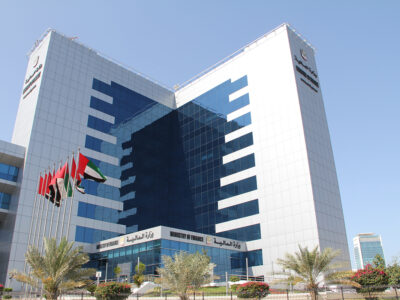Femtech – or female technology – is a burgeoning sector for entrepreneurs looking to tap into niche emerging markets and develop solutions for women.
The United Arab Emirates is home to one-third of the Middle East and North Africa’s femtech companies. Kate Batz, director of information platform FemTech Analytics, told Arabian Business that the UAE’s embrace of women’s health has helped propel the sector forward.
In a wide-ranging interview, Batz talks about how women in the sector are breaking the myriad taboos surrounding women’s health and bringing their issues to the forefront while finding solutions for women’s reproductive health, nursing issues, general health and more.
- Why is the UAE an attractive place for femtech?
The femtech industry emerged nearly 10 years ago. However, a wide range of aspects of female health remain underserved. While reproductive health and nursing has traditionally been the focus of femtech businesses and investments, several other sub sectors are gradually coming to the fore.
One-third of Middle East and North Africa’s femtech companies are based in the UAE, where innovation, women empowerment and gender equality are matters of national priority. Approximately 60 percent of UAE-based femtech companies are addressing women’s wellness and menstrual health, however, companies focusing on sexual health and menopause care are virtually non-existent.
In the UAE, reproductive health remains underserved among many other femtech areas, such as women’s wellness, menstrual health, contraception, longevity, pregnancy and nursing, general health care, mental health, and pelvic and uterine health care.
Looking at the bright side, femtech growth prospects for the near and medium-term future are quite strong in the UAE, offering investors a huge opportunity for differentiated returns through funding.
The UAE’s national strategy for women empowerment and its Gender Balance Council work to enact policies that support women at various levels. The country continues to prioritise women’s health by accelerating the growth of femtech. The Abu Dhabi Health Services Company (SEHA), the UAE’s largest healthcare network, has recently upgraded its Corniche Hospital to enhance patient experience and streamline the continuum of care. By doing so, the country is demonstrating a high calibre of governance, leading by example regionally and globally.

With the acceleration of female technologies and the country’s thriving academic and business community that support women, femtech development is expected to rise to new heights in the years to come.
- What are some of the main products or offerings we see developed from the femtech space in the region, and, in particular, in the UAE?
The UAE is well-positioned to achieve exponential growth within the femtech industry, considering the array of existing start-ups providing feminine hygiene products and educational tools such as Pectiv, Orgabliss, MyLily and LiZZOM, and the several more expected to arise over the coming few years.
Nabta Health, a Sharjah-based disruptive healthcare technology company, is building a decentralised, woman-centric model of healthcare for emerging markets. By combining the best of digital and traditional healthcare alongside clinical pathways to create a unique hybrid healthcare ecosystem, Nabta Health provides personalised, end-to-end support for women – from the acknowledgement of a specific health goal, through diagnosis, to holistic treatment options and beyond.
Some of our report’s key findings came as no surprise. For example, e-commerce platforms focused on women’s healthcare represent a key driver of the UAE’s femtech sector. Digital platforms in the pregnancy and nursing sub-sector offering consumer products for mums-to-be, new mums, and kids to enjoy motherhood journey, include Mama’s Box, Mumzworld and BabySouk.com.

- What barriers do entrepreneurs in the space face? How should these challenges be addressed?
Most investors in the MENA region are men, and the lack of understanding of female healthcare needs makes them reluctant to invest in female-related products. In addition, most femtech start-ups in the UAE are founded and led by women, who tend to receive less funding than their male counterparts. Despite the increasing interest from governments, entrepreneurs and investors in recent years, the industry remains underfunded.
The lack of market research and data is also a major femtech challenge.
To tackle these issues, we need to raise awareness about the importance of femtech, its purpose and prospects. From our side, as an analytics agency and investors, we are committed to spreading knowledge and organising more industry events, offering networking opportunities and creating platforms to strengthen the femtech ecosystem, and investing in high-growth femtech start-ups.
- What would the space benefit from, eg. better regulation, more funding?
In the UAE and globally, narrowing the gender fundraising gap is a key factor in overcoming femtech challenges. Through building awareness and sharing knowledge, women will eventually be able to have access to equal funding opportunities compared to male founders.
Globally, and in MENA, there is a huge gap in the women’s healthcare sector. We need to refine and elevate the discourse on women’s wellbeing, enabling communities to develop an in-depth understanding of the role of technology in advancing women’s health. Such efforts will eventually enable the femtech market to achieve significant growth.

We look forward to seeing more UAE companies utilising artificial intelligence and machine learning to advance women’s wellbeing. This is a niche market segment brimming with potential.
- Have femtech entrepreneurs faced any problems with tackling more taboo topics like menstrual health?
Globally, there is still a lot of stigma attached to many female health topics, including menstruation, sexual wellness and menopause. Femtech entrepreneurs continue to face challenges given the sensitive nature of the sector.
However, nations such as the UAE are leading the way and gradually breaking down taboos surrounding female health, thanks to a culture of openness, a high-level of health awareness and the tech savviness of the government, the private sector and civil society. As a result, society at large is becoming more receptive to engage in conversations about such topics and embrace positive change in support of the femtech sector.








